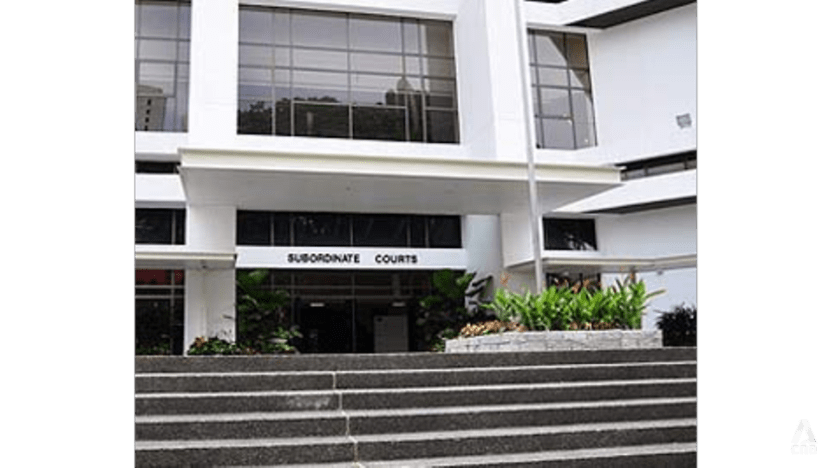Legal Profession Act changes passed
Singapore's Parliament has passed amendments to the Legal Profession Act (LPA) which will make it easier for the courts to admit foreign experts like Queen's Counsel (QC) to appear in the Singapore Courts.

Subordinate Courts (file photo)
SINGAPORE: Singapore's Parliament has passed amendments to the Legal Profession Act (LPA) which will make it easier for the courts to admit foreign experts like Queen's Counsel (QC) to appear in the Singapore Courts.
The subject prompted a robust debate in the House with Members of Parliament (MPs) expressing concern over its impact on Singapore's crop of Senior Counsel (SC), who are considered the equivalent of the QC.
Moving the second reading of the Bill, Minister for Law K Shanmugam told the House the Monetary Authority of Singapore, the banks and key stakeholders have welcomed the move.
Singapore has grown exponentially as a business and financial centre, and that's accompanied by a corresponding growth in the demand for top-tier legal representation.
In several cases, litigants and the man in the street have had difficulty getting the SC of their choice when they were up against a bank or a large firm.
Mr Shanmugam said: "We have several SC. The majority of them practise in large firms. These firms have extensive corporate practices serving a wide range of clients.
"As a result , many of our SC from the big law firms often find themselves unable or unwilling to act for a client when a large bank or corporate is on the other side. The larger firms would have had some relationship with such banks and corporates."
So there will now be a less restrictive approach to the ad hoc admission of foreign advocates.
Government Parliamentary Committee (GPC) Chair for Law and Home Affairs Hri Kumar said: "First, it is unclear what the criteria for admission will be now.
"The minister says it will be slightly easier to admit foreign advocates. It is unclear what 'slightly easier' means.
"I am concerned that if we relax the criteria for ad hoc admission, we might end up going to the old days of having many foreign advocates walking the hallways of our courts and start stifling the development of our local talent.
"I accept there may be areas we lack expertise but the LPA already allows for ad hoc admission in such cases. Can we not tweak the current regime as opposed to having one which makes the criteria less clear and more ambiguous?"
MP for Holland-Bukit Timah Group Representation Constituency (GRC) Christopher De Souza said: "One of the dangers of liberalisation from the perspective of developing a high quality bar, at least, is the risk of alienating lawyers from the middle and junior ranks, the very people who need the experience to build up their legal skills and expertise.
"The counter argument that our younger lawyers would actually benefit from having the guidance and counsel of these elite lawyers is in reality, a weak one.
"The truth is, these foreign counsel will likely look out for and work with their own juniors in London, strategising and preparing for their case.
"Where then, is the space for a Singapore lawyer to learn in that environment?"
Mr Shanmugam noted that Chief Justice Chan Sek Keong had addressed the challenge in 2010.
"I have the views of the chief justice distilled, not only his own observations, but also from the observations of the entire Judiciary," Mr Shanmugam said.
"I have to give some weight to what the CJ says. In fact, considerable weigh,t because I proceed on the basis that he is impartial, he is not looked at it in the interests of any particular section or segment of lawyers, that he looks at it at the broader interest of Singapore as a whole.
"The question for this House is not whether this amendment benefits, or is to the detriment of a small segment of lawyers. The question is for the man in the street, the litigant, is this beneficial, for the ordinary Singaporean?"
Mr Shanmugam also assured the House that despite the process of liberalisation of the legal sector since the year 2000, the legal profession in Singapore continues to be protected.
He said: "We have taken very, very incremental steps. The reason we took this incremental step is really to give our law firms the opportunity to level up, tie up, to bulk up, consolidate, increase their revenues, increase their size so that they can compete or create a framework where they can tie up with a foreign firm on a reasonable basis. That has been our approach."
Mr Shanmugam dismissed the argument by opposition MP Pritam Singh that local lawyers would be afraid or unwilling to act in political-type or libel cases
Mr Shanmugam said: "That suggestion would do local lawyers some injustice because I do believe at the end of the day, local lawyers will step up to handle any case where they feel representation is necessary.
"I am not one who cites personal experiences frequently but the fact that I was in a large firm which dealt with many matters for government-linked corporations, did not preclude me from acting in a libel for the IHT against the then-prime minister, senior minister and deputy prime minister.
"It's really the timbre of the man, not the supposed fear that matters and there will be enough lawyers in our profession. There are many lawyers whom I am sure will be prepared to do the same."
Other amendments passed related to Singapore law practices and the need for more flexibility to collaborate with foreign law practices and mandatory continuing professional development.
In future, when lawyers apply for their practising certificate, they would have to accompany it with declaration by the Institute of Legal Education that they have fulfilled their continuing professional development obligations.











